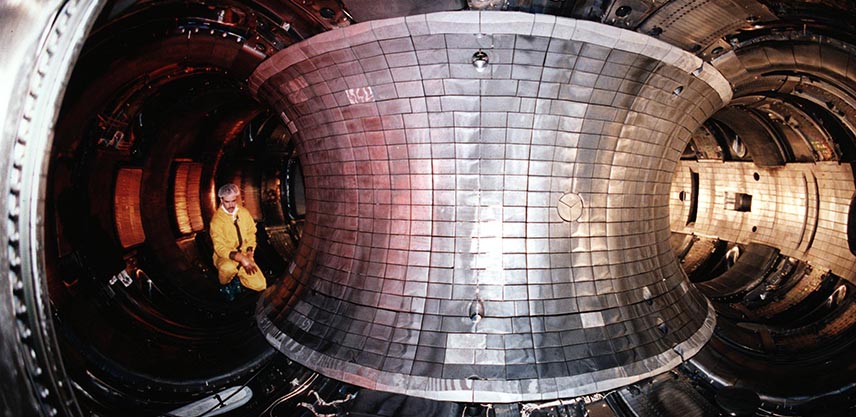The RADON Project: Developing archival technologies to enable the next revolution in low-carbon energy

U.S. Department of Energy, United States - 114 035 002, Public Domain
How is nuclear fusion related to the Bodleian Libraries?
In short, it’s all about data and information management and that’s one of the core elements of how libraries work. We’re using library concepts about data management, ways of structuring data, data storage and data provenance to help design the nuclear technologies of the future.
Data management and nuclear fusion
The RADON Project (Research Architecture for Deploying Ontologies in Nuclear Design) is a project currently funded by the UK Atomic Energy Authority (UKAEA), to develop the digital tools required for the design and construction of a prototype fusion power plant.
Fusion energy requires ways of managing, organising, and analysing data at incredible speeds – data needs to move in real time as the energy is created. This is a dynamic and complex experimental environment.
To meet these challenges the RADON Project is developing ways to understand where data has come from and is stored at each point in and the data lifecycle of a nuclear fusion experiment. The team is investigating these ‘provenance’ challenges and building digital infrastructure so that the fusion data can be managed for the long-term.
Our ultimate aim is to deliver a robust and trusted fusion data platform that will last for the seventy-year lifespan of a commercial fusion reactor. In the short-lived world of digital data, we are building a system for data that will last.
New tools and technologies
As the ability to generate energy from nuclear fusion doesn’t yet exist, scientists are running computer simulations to test ways it might work. They need to keep track of the data created in each of these simulations and use this to refine their research. In the RADON project we’re developing new tools and technologies for data management, analysis, visualisation, and dissemination that will help our nuclear science colleagues increase the effectiveness of their fusion simulation activities.
Our work will underpin:
- Data repositories that allow different access to well-managed and curated data from different fusion simulations which can be accesses by scientists remotely
- Support for archival processes, which means keeping track of data creation, movement, transformation and storage, related to the fusion simulations
- Rapid data analysis through using supercomputers to allow real-time scientific analysis of experimental data relating to fusion reactor designs.
- The development of machine learning models from data and simulations meaning they can be used in real-time
By using library science principles of data management, RADON will provide the trusted foundation required to streamline experimental processes, accelerate scientific understanding, and drive us closer to the goal of sustainable fusion energy production.
The project is currently contributing to a £3m Fusion Industry Partnership grant, led by Manchester University, titled “Design, Build, and Operation of Fusion Power Plants in the Industrial Metaverse”.
Team
Principal investigator: Paul Watry, Research Fellow (paul.watry@bodleian.ox.ac.uk)
Research Associates: Maureen Watry, Jerome Fuselier
Funded by the UK Atomic Energy Authority